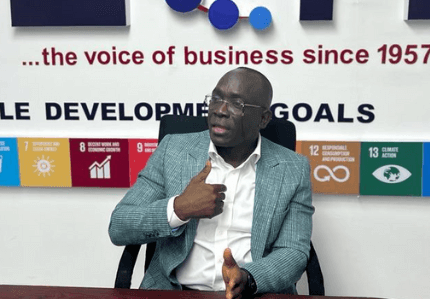NECA Applauds Inflation Decline, Calls For Strategic Monetary Policy To Unlock Growth

The Nigeria Employers’ Consultative Association (NECA) has applauded the steady decline in Nigeria’s inflation rate, which has now moderated for five consecutive months.
This follows the National Bureau of Statistics (NBS) Consumer Price Index (CPI) report, which shows headline inflation easing to 20.12% in August 2025, down from 21.88% in July.
NECA’s Director-General, Mr. Adewale-Smatt Oyerinde, stated that this sustained progress presents a crucial opportunity for policymakers, particularly the Monetary Policy Committee (MPC) of the Central Bank of Nigeria (CBN), to re-evaluate its prolonged tight monetary policy stance.
While the decline in inflation is commendable, he noted that its full benefits will remain muted unless the MPC strategically begins to reduce the Monetary Policy Rate (MPR).
“Lower interest rates will not only stimulate enterprise competitiveness but also boost access to credit, investment, and job creation, which are critical levers for inclusive growth,” Mr. Oyerinde said.
He, however, expressed concern that despite a marginal decline, food inflation remains high at 21.87%, continuing to exert immense pressure on households.
“For Nigerians to truly feel the impact of macroeconomic improvements, the decline in staple prices must translate into real relief for families,” he stressed.
Oyerinde highlighted that for businesses, high operating costs —driven by raw materials, energy, and logistics— remain a threat to sustainability.
For individuals, persistent inflation continues to erode disposable income and consumer demand, undermining growth and hindering meaningful job creation.
The Director-General advised that the government must complement monetary easing with broader interventions.
These include further strengthening the exchange rate to curb imported inflation, investing heavily in agriculture by securing farming communities and expanding mechanization, and addressing structural bottlenecks in energy, transport, and regulation.
He concluded by emphasizing that the current inflation trend presents a compelling case for the MPC to ease its tight stance.
“It is time to balance price stability with deliberate growth stimulation so that enterprises can thrive, jobs can be created, and Nigerians can experience tangible relief from the cost-of-living crisis.”













